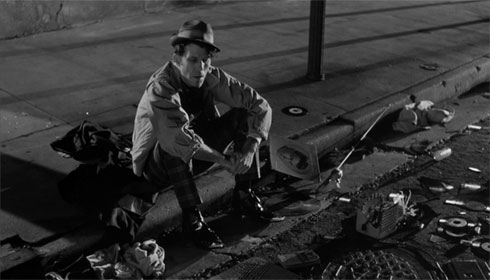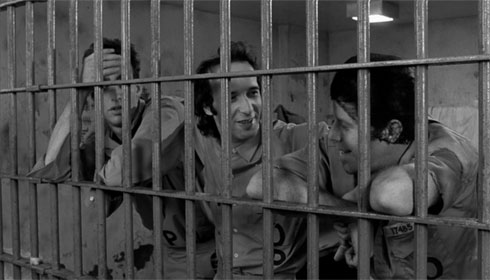Category: The Criterion Collection
My neverending quest to watch all of the Criterion Collection films.
A part of this viewing list: Criterion Collection Spine #166: Jim Jarmusch’s Down By Law.

Jim Jarmusch knows how to shoot in black and white. I always forget this until I rewatch something of his. I own Dead Man, and I should probably get my hands on this film as well. Shot in New Orleans, over twenty years ago, its central motivators are timeless. I’m starting to notice this about Criterion Collection films, for the most part the problems that are central to the plots in these films are all of the aforementioned timeless variety. The aspects that qualify the film for their treatment and give variety to the collection [which is slightly humorous considering the amount of samurai flicks that are present] are the distinct spins that are given to something as apparently straightforward as a prison escape film.

JJ manages this by devoting a relatively large amount of the film’s time to the rising action, before the three main characters even arrive in jail. Similarly inspired is his decision to leave out many parts of the story that are either unnecessary or can be figured out by the viewer. Normally the result of this would be a terse film, but Jarmusch uses the resulting breathing room to examine the private sides of his characters.

This is easier said than done, since John Lurie and Tom Waits pull off sullen reticence as if it were natural to them. Roberto Benigni acts as a foil to their misanthropy, but also poses a different sort of characterization problem. Jack [Lurie] and Zack [Waits] are too similar in personality but different in application to get along with each other, but the uncertainty that they hide even when alone comes through in their constant fidgeting, day-dreaming and bickering until they eventually recognize their kindred spirit. Benigni’s character Roberto uses his extroversion in the same defensive way that the Jack and Zack use their introversion; by attempting to make friends with everyone and be as expansive as possible, he tries to hide his unease with American culture. All he really does, just like Jack and Zack is make it obvious that he has no idea what is going on in his life.

Their mettles are tempered through the trials of their imprisonment and escape, and while they never become close, the understanding they gain from one another about life and companionship results in a new purpose for each of them. The viewer might not know what that purpose is, but the message is clearly and wryly brought home. We’re all tough enough to get out of whatever trouble we manage to get ourselves into.

• Criterion Essay by Luc Sante.
• Senses of Cinema article on Jim Jarmusch.
• Images Journal review with screenshots.
• YouTube Clips [1, 2, 3].